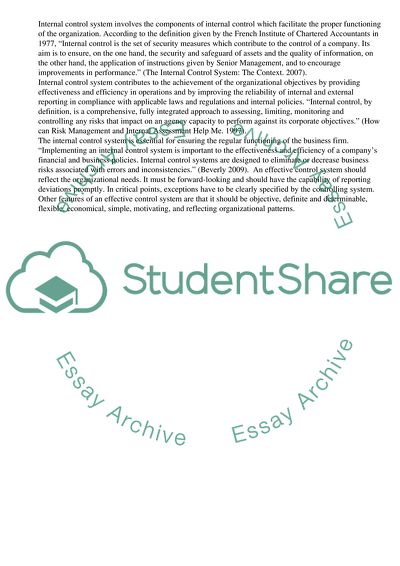Cite this document
(Internal Control Systems Coursework Example | Topics and Well Written Essays - 1500 words, n.d.)
Internal Control Systems Coursework Example | Topics and Well Written Essays - 1500 words. https://studentshare.org/management/1719829-internal-control-is-fundamental-to-organisation-effectiveness
Internal Control Systems Coursework Example | Topics and Well Written Essays - 1500 words. https://studentshare.org/management/1719829-internal-control-is-fundamental-to-organisation-effectiveness
(Internal Control Systems Coursework Example | Topics and Well Written Essays - 1500 Words)
Internal Control Systems Coursework Example | Topics and Well Written Essays - 1500 Words. https://studentshare.org/management/1719829-internal-control-is-fundamental-to-organisation-effectiveness.
Internal Control Systems Coursework Example | Topics and Well Written Essays - 1500 Words. https://studentshare.org/management/1719829-internal-control-is-fundamental-to-organisation-effectiveness.
“Internal Control Systems Coursework Example | Topics and Well Written Essays - 1500 Words”. https://studentshare.org/management/1719829-internal-control-is-fundamental-to-organisation-effectiveness.


